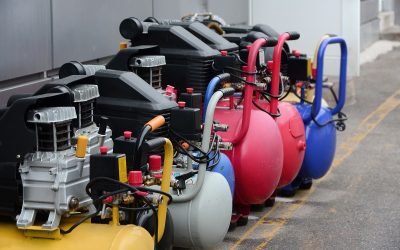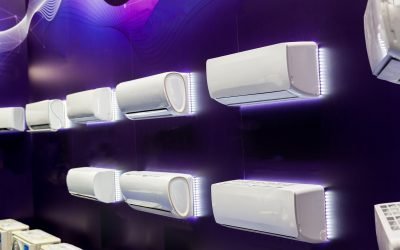Cooling systems are vital for many industries and for everyday life. From temperature control for the industry to refrigerators and home air conditioners, they are equipment that are on for several hours a day. Therefore, the higher the energy efficiency in cooling, the better!
Therefore, many engineers are studying ways to make components such as compressors as efficient as possible. This is reflected in savings for the consumer, reduced need for energy generation and lower environmental impact.
In other words, the agenda is extremely relevant, especially as the temperature of the planet is increasing more and more.
In this text, you will understand the importance of this agenda, which factors impact energy consumption and how it is possible to achieve energy efficiency in refrigeration
What is an energy efficient compressor?
It means using energy as efficiently as possible, with high performance and little expense. Basically, it means generating more cold using less electrical energy.
This is achieved through the work of engineering teams in the development or improvement of components, such as compressors, condensers, expansion valves, among others.
The goal is to always do the same (or more) work without increasing energy consumption. Each appliance receives a “grade” of energy efficiency.
They’re those colorful labels, with letters from A to G. You’ve probably seen them on some household appliance, right?
However, the difference in consumption between a Class A refrigerator in Brazil and a Class A in Europe is large, indicating that there is much room for improvement.
As refrigeration equipment is on for many hours (or even all day), it must be as efficient as possible.
Why worry about energy efficiency in cooling?
There are two main reasons: consumer savings and environmental impact. In general, cooling systems consume a lot of energy, so they are at the center of the debate on cost reduction in cooling and sustainability.
Economy
According to a report by the International Energy Agency (IEA), domestic fans and air conditioners alone account for 10% of global electricity consumption in buildings.
By 2050, the forecast is that ⅔ of the world’s homes will have some air conditioning system at home. According to forecasts, China, Indonesia and India will add up to half of the devices.
Refrigeration is the main energy demand and the trend is for the values to triple by 2050. This is especially worrying because the planet’s temperature increases year by year, which requires more robust equipment to maintain comfortable environments at home.
In industrial refrigeration, the scenario is similar. According to a survey by ELGi, energy consumption is the main expense when talking about compressors that are on all day.
Energy represents 88% of expenditures during the first 10 years of life. Maintenance represents 6% and the component costs the other 6%.
In other words: energy efficiency in cooling provides a drastic savings in the costs involved in the equipment.
In home systems, it means that the electricity bill comes cheaper. In industry, it means not wasting resources unnecessarily.
The environmental impact
Any form of energy production has impacts on the environment. Either by the use of some natural resource, as in hydroelectric plants, or by the emission of CO².
As cooling constitutes an important part of the global energy consumption, the components must spend as little as possible.
A vicious cycle occurs: the hotter the planet, the more powerful the cooling systems need to be. And the trend is that the more powerful they are, the more energy they use. And the more energy they spend, the hotter the planet.
That is why energy efficiency is identified by the IEA as an important focus for a more sustainable world.
How to achieve energy efficiency in cooling?
There are many variables that influence, such as the design of components, refrigerants used, installation of equipment and much more.
Speaking specifically of compressors, these are some points to consider, according to Alexandra Moreno, from ELGi.
Compressor size
It needs to be suitable for the size of the room you want to cool. Otherwise, the tendency is to spend more energy.
For example, if you use a large air conditioner for a small room, you are wasting your cooling capacity.
Therefore, the biggest compressor is not always the most suitable. It is necessary to carry out complete studies and tests to understand exactly what is the demand for each project.
Variable cooling demand
Some industries have specific cooling needs. They may need more cooling during some hours of the day, or more cooling when the production pace is more intense.
The motor speed must follow this demand variation, but this is not always the case. In these cases, energy consumption is higher than necessary.
Air distribution system design and materials
According to ELGi, these two precautions also increase energy efficiency in cooling.
Recommendations are to minimize the distance from the compressor to the area to be cooled and to avoid bending to reduce pressure drops.
They also suggest using materials like plastic, aluminum and steel for industrial systems.
They also recommend preventive maintenance on structures to avoid leaks. They constitute about 25% of the annual energy expenditure of industrial compressors and, in many cases, can be avoided.
Tests and simulations
Finally, when it comes to the development of new components, tests and simulations are an excellent way to ensure maximum efficiency. Through them, it is possible to understand how a certain system works even before developing the prototypes.
This is a necessary path to innovation and ensures that problems are identified before they even happen.
NVH Specialists
Vibroacustica is specialized in NVH analysis and simulations in several areas, in addition to having expertise in compressor projects for national and international customers.




